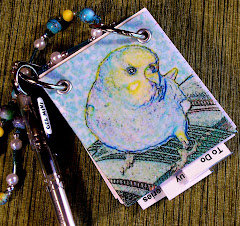"If one person calls you an ass, that's his opinion; if two people call you an ass, consider the opinion carefully; if three people call you an ass, go have yourself fitted for a saddle." --Arab proverb
Marian Jones was one of the early leaders of Romance Writers of America, back in the '80s. She was an older lady with a warm personality and a fabulous collection of hats. Every year at the conference, I would look forward to seeing what outrageous headgear she sported.
I'm not sure if Marian is still alive. She faded away from RWA years ago. But she left me with a legacy that will be with me always.
I didn't now her personally, but she was the Golden Heart coordinator way back when. (The Golden Heart, in case you don't know, is RWA's contest for unpublished writers.) I was a young, idealistic writer entering my first contest, and my scores came back very low. One overzealous judge took it upon herself to tell me just exactly how unpublishable my manuscript was. (This was back when entrants received scoresheets with detailed comments from judges.)
Marian handled the situation so delicately. I am sure she thought the judge was too harsh, but she honored that judge's right to air her opinions. Instead of openly criticizing the judge and undermining the contest, she sent me the above quote, in effect saying, "Only one person called you an ass, don't worry about it."
She also sent me a long, hand-typed treatise on how to give and accept criticism. The gist of her message was, criticism should be offered as neutrally as a tree offers fruit. In other words, the critic should not be invested in the advice. She puts it out there, and the writer can accept it or reject it. And the writer should remember that any criticism is not an indictment of her as a person, or even as a writer, but just an opinion about this one piece of writing. Don't defend against the criticism, but simply listen, think about it, use what makes sense to you and discard the rest.
One other thing Marian said has stuck with me. If someone critiques you harshly--even if she is trying to strike out at you in a mean way--don't automatically discard the comments. You can still make use of them. For instance, if a critiquer says something awful like, "This whole chapter is boring, boring, boring!" You can say, "Really? Can you show me where you first started to get bored? Which parts really put you to sleep? Were there any interesting bits at all?" Press the person to be more specific. Maybe you DO need to tighten.
Marian's wonderful advice can be used in any arena, not just for writers. For instance, if a mean boss criticizes you at work, ask her to be as specific as possible about what part of your performance is lacking, so that you can improve. If your spouse doesn't like a meal you've prepared and shows an inappropriate amount of gratitude for the fact you cooked at all, ask for specifics. Too spicy? Too bland?
Taking criticism in this manner serves two purposes: First, it helps you to improve your performance. Second, it will really bug any critic who is trying to get your goat. If you actually thank them for their valued opinion, you'll drive them nuts. (And if they really are trying to be helpful, but perhaps they're not very adept at voicing constructive criticism, you'll be showing them how to do it.)
Constructively yours,
Kara



3 comments:
I love that proverb! And how wonderful that Marian Jones took the time to write to you. I'm sure her words were more effective than those of the judge.
Whenever I'm critiquing my critique partners' work or a contest entry, I follow the 'it's not what you say but how you say it' adage. And luckily, I have CPs who do the same.
Annette--
It's definitely an art. I know I've occasionally let critiquing get me down, but usually it was because I knew the critiquer was right but I didn't know how to fix the problem.
Terrific proverb and a wonderful way to illustrate the point.
Definitely a good way to approach criticism.
Post a Comment